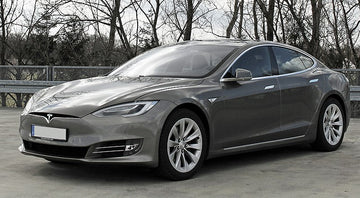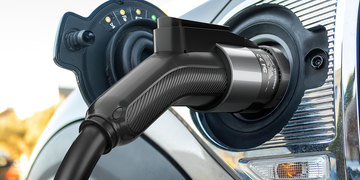As the automotive landscape evolves towards sustainability, electric cars have become an increasingly popular choice for environmentally conscious consumers. With this shift comes a natural curiosity about the costs associated with owning and operating an electric vehicle (EV). If you're considering making the switch to an electric car, you might be wondering, "How much does it cost to charge an electric car in 2024?" In this article, we will explore the factors influencing the cost of charging an electric car and provide insights into the current landscape.
Factors Influencing the Cost of Charging an Electric Car
Electricity Rates:
The primary factor influencing the cost of charging an electric car is the local electricity rate. Electricity prices can vary significantly based on your geographical location and the time of day. Some regions offer special tariffs for electric vehicle charging, providing cost savings during off-peak hours.
Charging Speed and Infrastructure:
The charging speed and infrastructure you use can impact the overall cost. Public charging stations may have different pricing structures, and fast-charging stations generally come with a higher cost per kilowatt-hour (kWh) compared to home charging. Understanding the available charging options in your area is essential for accurate cost estimates.
Vehicle Battery Capacity:
The battery capacity of your electric car plays a crucial role in determining charging costs. Larger battery capacities require more electricity to reach a full charge. Knowing your vehicle's battery capacity and charging efficiency will help you estimate the cost per mile.
Charging Efficiency:
Charging efficiency, expressed as the percentage of energy transferred to the vehicle's battery during charging, can vary among different electric car models and charging equipment. More efficient charging results in lower overall charging costs.
Time of Use Tariffs:
Some utility providers offer time-of-use tariffs, allowing users to benefit from lower electricity rates during specific hours. Planning your charging sessions during off-peak hours can lead to cost savings.
Government Incentives:
In 2024, government incentives and subsidies for electric vehicles and charging infrastructure may still be in place, influencing the overall cost of ownership. Researching available incentives in your region is crucial for a comprehensive understanding of the financial aspects.
While the transition to electric vehicles is driven by environmental consciousness, understanding the costs associated with charging an electric car is essential for prospective owners. The cost of charging in 2024 is influenced by various factors, including electricity rates, charging infrastructure, battery capacity, efficiency, and government incentives.
How to calculate the cost of charging an electric car?
The way to calculate the cost of charging an electric vehicle is to start with the total kilowatt hours (electricity) required to charge the electric vehicle battery and then multiply by the price of electricity per kilowatt hour. For example, if the battery has a usable capacity of 50 kWh and the electricity price in your home is $0.23 per kilowatt hour, recharging the battery once it is completely drained will cost $11.50.
It's worth noting that when you look at the window sticker for an electric car, you'll see an estimate of kilowatt hours consumed per 100 miles (kWh/100 miles), which is the number of miles per gallon traveled in an electric car. You can also use this estimate to calculate the cost of charging your electric vehicle. Simply multiply the vehicle's consumption estimate (kWh/100 miles) by the cost of electricity per kWh - the output is the cost per 100 miles. For example, let's say you're considering buying a 2023 Tesla Model 3 RWD, which has an EPA rating of 25 kWh/100 miles. If you pay $0.23 per kilowatt-hour, the estimated cost of this Tesla is $5.75 per 100 miles.

How much does it cost to charge an electric car at home?
The price per kWh at home varies by location and the utility company. Let's take the 2023 Chevrolet Bolt EV as an example, which has a usable battery capacity of 65 kWh. Assuming you're in Los Angeles, with an average electricity cost of $0.27 per kWh and a completely depleted battery, it would cost $17.55 to charge the battery back to full. Here are a couple more examples.
The price per kWh at home varies by location and the utility company. Let's take the 2023 Chevrolet Bolt EV as an example, which has a usable battery capacity of 65 kWh. Assuming you're in Los Angeles, with an average electricity cost of $0.27 per kWh and a completely depleted battery, it would cost $17.55 to charge the battery back to full. Here are a couple more examples.
The price per kWh at home varies by location and the utility company. Let's take the 2023 Chevrolet Bolt EV as an example, which has a usable battery capacity of 65 kWh. Assuming you're in Los Angeles, with an average electricity cost of $0.27 per kWh and a completely depleted battery, it would cost $17.55 to charge the battery back to full.
How much does it cost to charge at a Tesla Supercharger station?
According to Tesla's website, owners are billed per kWh when possible; otherwise, they are billed per minute. Each station has its own pricing, and Tesla owners can look up the price of the nearest Supercharger on their navigation screen. The pricing can also vary based on peak and off-peak hours. In California, the Supercharger price is approximately $0.50 per kWh, according to Electrek. In a Tesla Model 3 Long Range with an 82-kWh battery, it would cost about $41 for a full charge.
For Supercharger stations that bill per minute, Tesla determines its price with a four-tier system, based on the charging speed:
Tier 1: Charging at or below 60 kW, lowest price per minute
Tier 2: Charging above 60 kW but at or below 100 kW, second-lowest price per minute
Tier 3: Charging above 100 kW but at or below 180 kW, second-highest price per minute
Tier 4: Charging above 180 kW, highest price per minute
Note that Tesla's website provides only the hierarchy above, as opposed to specific pricing.
What are the different rate plans for electricy consumption?
There are two types of rate plans that utility companies typically have: level-of-use and time-of-use. With level-of-use plans, which is essentially "pay as you go", the electricity cost rises with your consumption. A kilowatt at month's end is likely to cost more than one used at the beginning of the month.
With time-of-use plans, you pay a certain rate based on the time, day and even season you're using electricity. The hours of 4 p.m. to 9 p.m. are typically considered "peak hours" and cost the most. Off-peak hours, usually the early mornings or late nights, are the least expensive. Some utility companies also have midpeak slots.
PG&E, one of the largest utility companies in the U.S., offers a time-of-use plan for its customers. During the summer months, off-peak electricity costs as low as $0.34 per kWh and jumps to $0.41 per kWh during peak hours. If you charged your Chevrolet Bolt EV during off-peak hours, it would cost about $22 for a full charge. Compare that to $26.65 during peak hours.
Some utility companies give you a designated baseline allotment of power. This will result in the lowest rates, but if you go over your allotment, the prices go up. With PG&E, off-peak power for customers who have gone over their allotment costs $0.42 per kWh, rising up to $0.49 per kWh for peak hours. This changes the figures for the Bolt EV above to $27 and $32, respectively.





